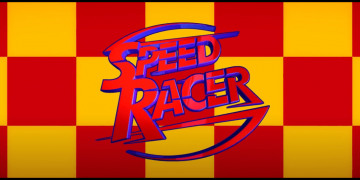Recently, YouTube has introduced a new way to deal with spam and spammers who are trying to impersonate other users on the platform. The new feature is designed in a way to make it rather difficult for fake accounts to impersonate the real ones and make way for YouTube spam.
New way of dealing with YouTube spam
Spamming is not new to social media platforms, especially platforms like Facebook and YouTube. Lately, this issue of spam has gotten much worse than before due to easier and wider access to digitalization. In order to fight spam, the popular video-sharing and streaming platform has come up with a new feature that will make it difficult for spammers to succeed with their YouTube spam and hoax agenda.
Starting on July 29, YouTube channels will no longer be able to conceal their subscriber counts. Hiding the number of subscribers is an easy way for spam accounts to hide what they really have going on in order to impersonate accounts and channels that are established and massive followings. The Google-owned video platform said that is a tactic commonly used by those pretending to be behind larger and more established channels.

In a statement, YouTube acknowledged that, “some creators prefer to hide their subs count as they try to grow,” but the company has deemed the potentially controversial measure necessary to reduce the prevalence of impersonators. The change is sure to upset some people, since, really, YouTube is removing an option here rather than adding something, but the company is making the move nonetheless.
However, the platform is also putting new special character restrictions on channel names—another measure designed to make it harder for impersonators to hide in plain sight. From now on, some special characters will not be allowed any more, but it sounds like you might still be able to toss a weird character in if it makes the cut. Basically, YouTube doesn’t want people spelling things out in all special characters à la ‘¥ouⓉube’ — a common spam tactic.
Often times, spam accounts or people running fake accounts copy the name of whoever they are pretending to be. But to keep their identity protected, they subtly change certain characters. It is difficult to detect a fake account or a spam account at first glance because they might look like the real thing, and on a scale that is not enough to lure unwitting users to a fake channel or scam links or whatever they are trying to push.
‘Increase Strictness’ and ‘Identity Abuse’


Additionally, YouTube is also announcing that its ‘increase strictness’ comment moderation setting will be rolling out to all creators. The option, which can be toggled on in the community settings menu, will filter out comments more aggressively than the default setting, potentially eliminating more of what YouTube calls ‘identity abuse’ along with other spammy stuff clogging up your corner of the platform.
In recent months, creators have been calling attention to a frustrating surge in YouTube spam. In April 2022, consumer tech YouTuber Marques Brownlee posted a video expressing his frustration with spam. He remarked how, for months, he has been dealing with the subject and it has only gotten ‘next-level out of control’ in his channel’s comment section. He further tweeted about YouTube’s ‘increase strictness’ comment moderation tool at the time, and now that previously experimental feature will be available to everyone tired of slogging through spam.
Read Also : If you’re banned on WhatsApp, we (might) have a solution for you!
Nishant is a digital marketing strategist. He provides innovative and results-driven latest technology solutions so that tech business owners become even more successful in their chosen fields of endeavour. You can Connect With him on LinkedIn and Twitter.
Source by techresearchonline.com





























